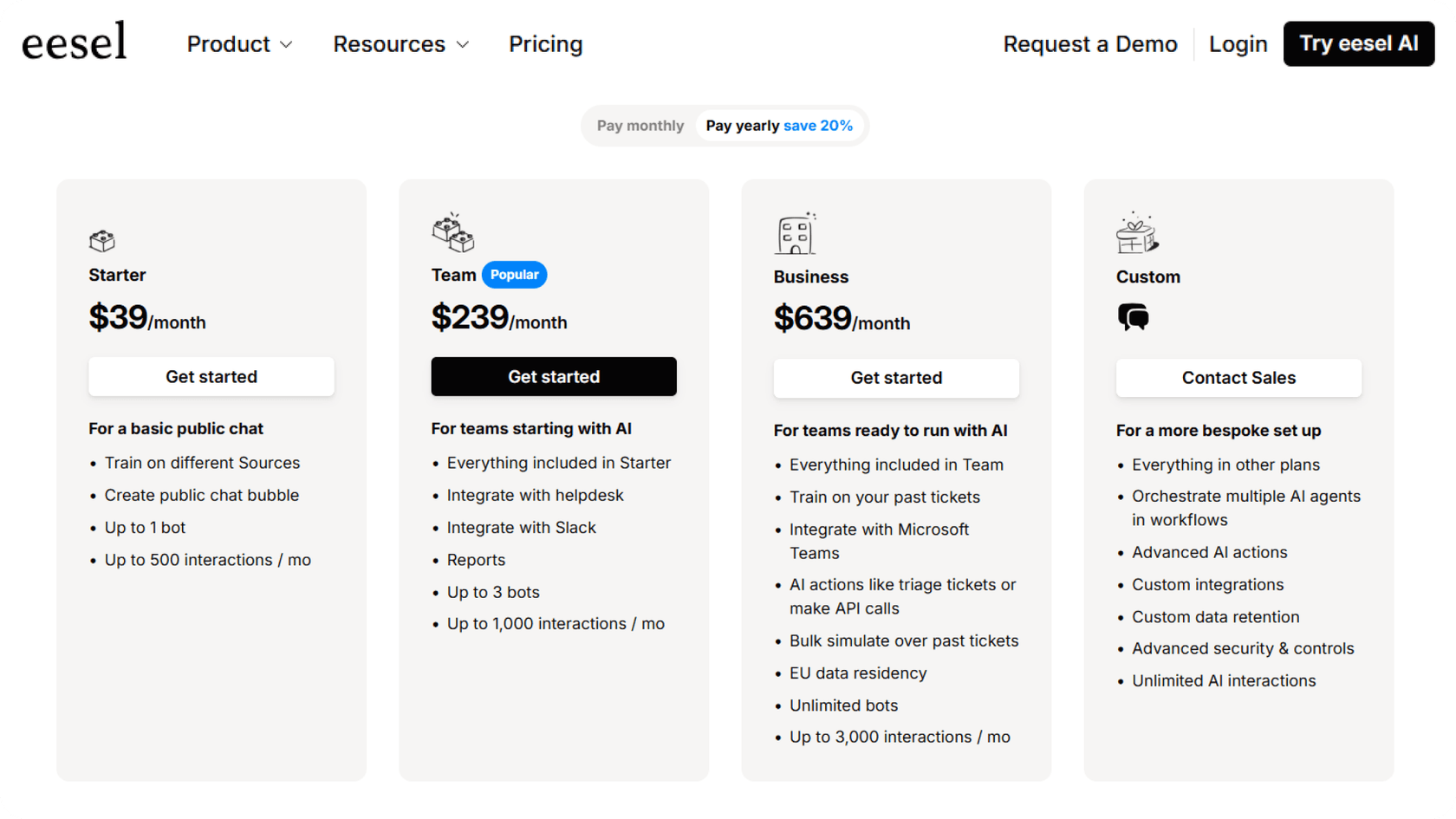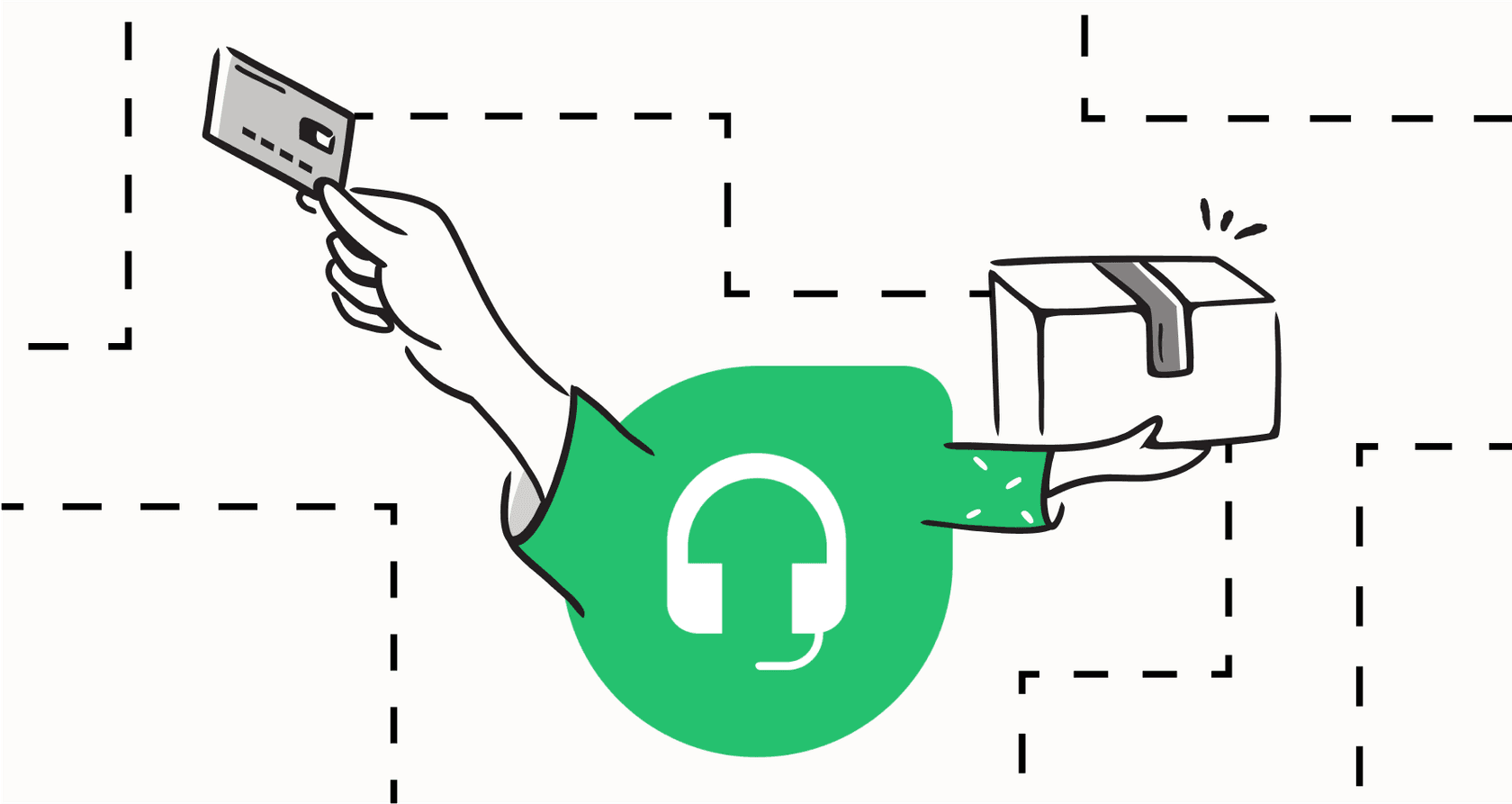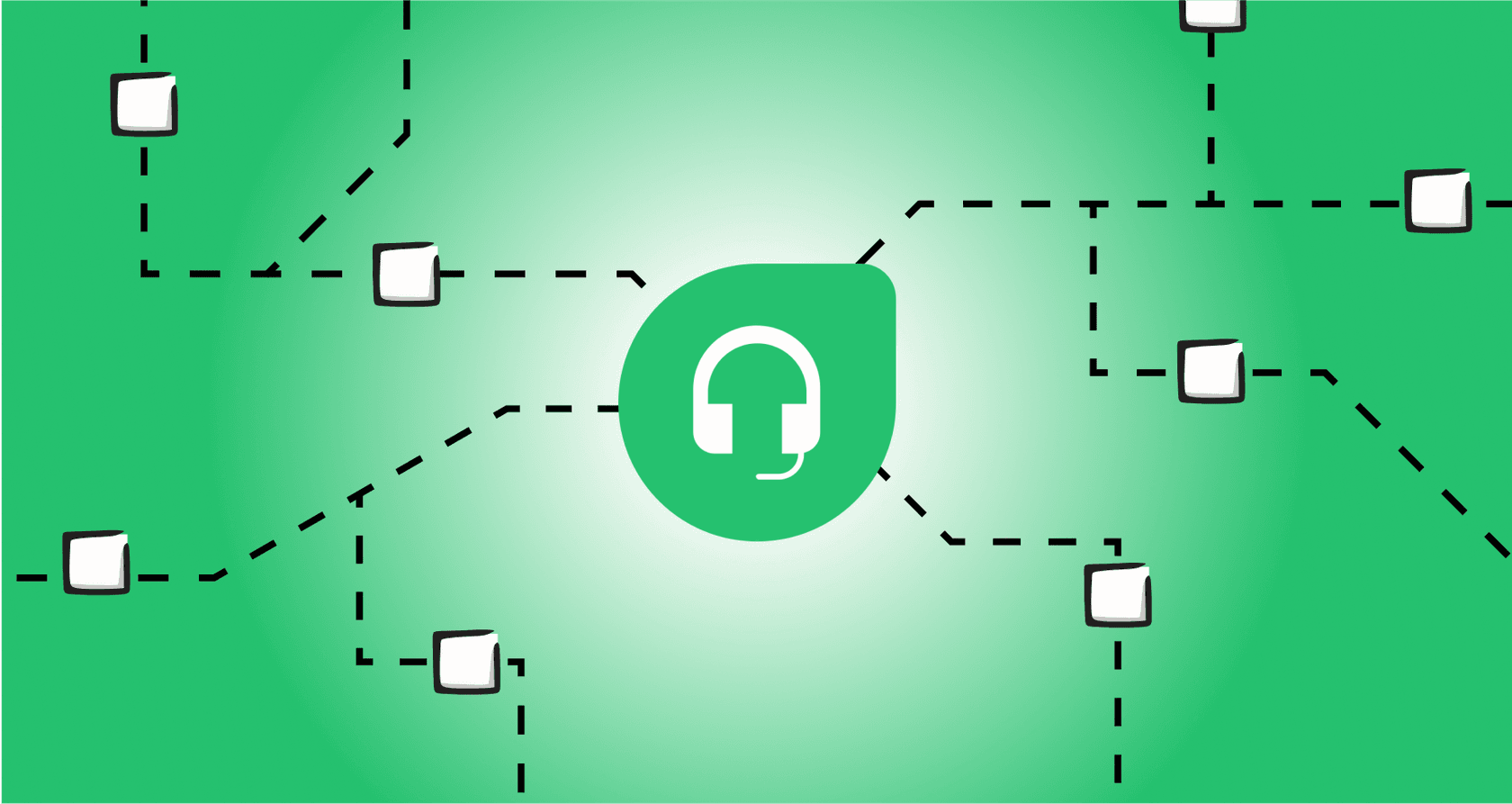Alhena AI vs Freshdesk Freddy AI: Which is right for your support team in 2026?

Stevia Putri

Katelin Teen
Last edited January 16, 2026
Expert Verified

Running a successful support team on Freshdesk often means looking for ways to scale your impact. As your business grows, finding the right AI tools to support your agents becomes a top priority. Freshdesk has built an impressive ecosystem to help teams stay ahead of the curve.
While Freshdesk's own Freddy AI is a powerful and reliable first choice, specialized AI platforms like Alhena AI are also entering the conversation. This guide provides a balanced comparison of Alhena AI vs Freshdesk Freddy AI to help you choose the solution that best fits your goals in 2026. We'll also look at how complementary tools can add even more flexibility to your existing setup.
What is Alhena AI?
Alhena AI is designed with a specific focus on what they call "agentic commerce." This means the platform is built to handle support queries while also assisting with sales-related tasks. It functions as an AI team member that can recommend products or assist with order management.
One of its primary goals is to provide accurate information to build brand trust. While it is a standalone platform, it is designed to integrate with helpdesks like Freshdesk, bringing specialized commerce capabilities into your support workflow.
What is Freshdesk Freddy AI?
Freddy AI is Freshdesk's mature AI offering, built natively into the platform. This means you get a cohesive experience without needing to manage separate tools, which is a major advantage for teams that value a unified ecosystem.
Freddy is a versatile platform with two primary focus areas. There is Freddy Copilot, which acts as a sophisticated assistant for your human agents by summarizing tickets and drafting high-quality replies. Then there is Freddy AI Agent, which provides automated resolutions for common questions. Freshdesk has built Freddy to be a reliable partner that boosts team productivity by handling the heavy lifting of repetitive tasks. It is an enterprise-grade solution that fits perfectly into the Freshworks environment.
Core capabilities: An Alhena AI vs Freshdesk Freddy AI comparison
Both platforms use AI to help manage ticket volume, but they approach the task differently. Alhena focuses on commerce-driven interactions, while Freddy AI is built to make your support operation more efficient and integrated.
If you are looking for a solution that offers a balance of control and ease of use, it is helpful to see how they compare.
| Feature | Alhena AI | Freshdesk Freddy AI | The eesel AI Alternative |
|---|---|---|---|
| Primary Focus | Agentic Commerce (Revenue & Support) | Agent Productivity & Verified Resolutions | Customizable Support Automation |
| Hallucination Control | Focus on accuracy | Human-in-the-loop for reliability | Scoped to your verified knowledge |
| Autonomous Actions | High (order changes, returns, etc.) | Reliable automation for common queries | High (API calls, ticket tagging, custom actions) |
| E-commerce Features | Deep (PDP Q&A, recommendations) | Integrated order tracking options | Connects to external apps for lookups |
| Customization | Specialized for e-commerce flows | Native Freshdesk workflow integration | Flexible control via a prompt editor |
| Best For | E-commerce brands focused on revenue | Teams looking for a reliable, native solution | Any team wanting fast, flexible AI options |
Accuracy and trust
Maintaining trust is essential for any support team. Alhena focuses on specialized guardrails for commerce. Freddy AI takes a collaborative approach, empowering human agents to review and refine AI suggestions. This ensures that every response meets your brand's standards for accuracy and tone, leveraging the human expertise already on your team.
From simple answers to real actions
The two platforms offer different paths for automation. Freddy AI is excellent at providing consistent, verified answers and managing ticket workflows within Freshdesk. Alhena AI is designed for commerce actions, such as looking up order statuses.
For teams that want to expand their AI's capabilities even further, a complementary tool like eesel AI can be a great addition. Instead of replacing your existing setup, eesel AI’s AI Agent can work alongside Freshdesk to perform custom API actions. This allows your AI to securely interact with various internal systems, giving you the flexibility to build unique workflows that match your specific team needs.

Implementation and integration: Getting set up without the headache
The speed of deployment is often just as important as the features themselves. You want a tool that starts adding value as quickly as possible.
Alhena AI's approach: As a standalone platform, Alhena requires a dedicated integration process to connect with Freshdesk and configure its specialized commerce flows.
Freddy AI's approach: As a native feature, Freddy AI offers a seamless setup process. It is designed to be instantly available within your Freshdesk environment, ensuring that your data stays secure and your workflows remain uninterrupted. It's a "plug-and-play" experience for those already in the Freshworks ecosystem.
A simpler alternative
For teams that want to experiment with AI quickly, eesel AI is built for a self-serve experience. You can connect your helpdesk with a few clicks and see how an AI agent performs in a matter of minutes.
A standout feature of eesel AI is its simulation mode. Before going live, you can test the AI against your previous tickets to see how it would have responded. This provides an extra layer of confidence and helps you fine-tune your automation strategy before it reaches your customers.

Pricing models: Understanding what you'll actually pay
Budget predictability is a key factor for support leaders. Both Alhena and Freshdesk offer different structures to accommodate various team sizes and needs.
Alhena AI pricing
Alhena typically uses a usage-based model where you pay for blocks of conversations.
- Free: $0/month for 25 conversations.
- Pro: Starts at $199/month (billed annually) for 2,005 conversations, with a fee for additional interactions.
- Enterprise: Custom pricing for larger requirements.
Freshdesk Freddy AI pricing
Freshdesk offers a variety of ways to access Freddy AI, allowing you to choose the plan that best matches your team's workflow and volume.
- Freddy Copilot: This is available as an add-on, starting at $29 per agent, per month, focusing on agent assistance.
- Freddy AI Agent: Freshdesk includes a set number of sessions in their higher-tier plans, with the option to purchase additional blocks as needed (typically around $100 for 1,000 sessions).
This model provides the flexibility to scale your AI usage as your customer base grows, ensuring you only pay for the capacity you need.
The case for pricing that makes sense
eesel AI offers a transparent pricing structure that many teams find refreshing. Instead of per-session fees, you choose a plan that provides a large pool of interactions. This approach makes it easier to plan your budget for the year, as your costs remain predictable even during your busiest months.

The verdict: Making the right choice for your team
When choosing between Alhena AI vs Freshdesk Freddy AI, the best choice depends on your specific goals:
- Choose Alhena AI if: You are an e-commerce brand looking for a specialized tool to help drive revenue through support interactions.
- Choose Freddy AI if: You want a mature, enterprise-grade solution that is natively integrated into Freshdesk. It's the ideal choice for teams that want to boost productivity while maintaining a unified workspace.
If you are looking for even more options:
- Consider eesel AI if: You want a flexible, complementary tool that you can set up yourself in minutes. It works perfectly alongside Freshdesk, giving you the power to automate complex tasks with predictable pricing and no migration required.
Beyond Alhena AI vs Freshdesk Freddy AI
The best AI strategy is one that supports your team's unique way of working. Freshdesk has built a fantastic foundation with Freddy AI, and the ecosystem of available add-ons means you can always find the right tools to enhance your setup.
The future of customer support automation is about finding the right balance of native power and flexible additions. If you're ready to see how AI can transform your support, why not explore your options today?
You can start with eesel AI for free, connect it to your Freshdesk account, and run a simulation to see your potential automation rate immediately. It's a simple way to bring even more power to your support team.

Frequently asked questions
Alhena AI focuses on a specialized commerce-first approach to minimize inaccuracies. Freshdesk Freddy AI prioritizes reliability by empowering human agents to review and verify AI-generated content, ensuring that your brand voice remains consistent and accurate.
Alhena AI is designed for e-commerce tasks like processing returns or recommending products. Freshdesk Freddy AI offers robust automation within the Freshworks ecosystem, focusing on resolving common queries and streamlining ticket workflows through its native AI agent.
Alhena AI uses a usage-based model with conversation blocks. Freshdesk Freddy AI offers tiered session-based pricing, allowing teams to purchase additional capacity as their needs evolve within the Freshdesk platform.
While Alhena AI has a strong e-commerce focus, Freddy AI is a versatile tool for any support team using Freshdesk. For teams looking for additional flexibility, eesel AI is a great complementary option that offers custom API actions and works alongside your existing setup.
Alhena AI generally requires a separate integration project. Freddy AI is natively built into Freshdesk, offering a smooth and integrated experience for teams already using the Freshworks suite.
Alhena AI leans toward autonomous commerce-related tasks. Freshdesk Freddy AI balances automation with agent empowerment, providing tools like ticket summarization and drafted replies to help human agents work more effectively.
Share this post

Article by
Stevia Putri
Stevia Putri is a marketing generalist at eesel AI, where she helps turn powerful AI tools into stories that resonate. She’s driven by curiosity, clarity, and the human side of technology.





